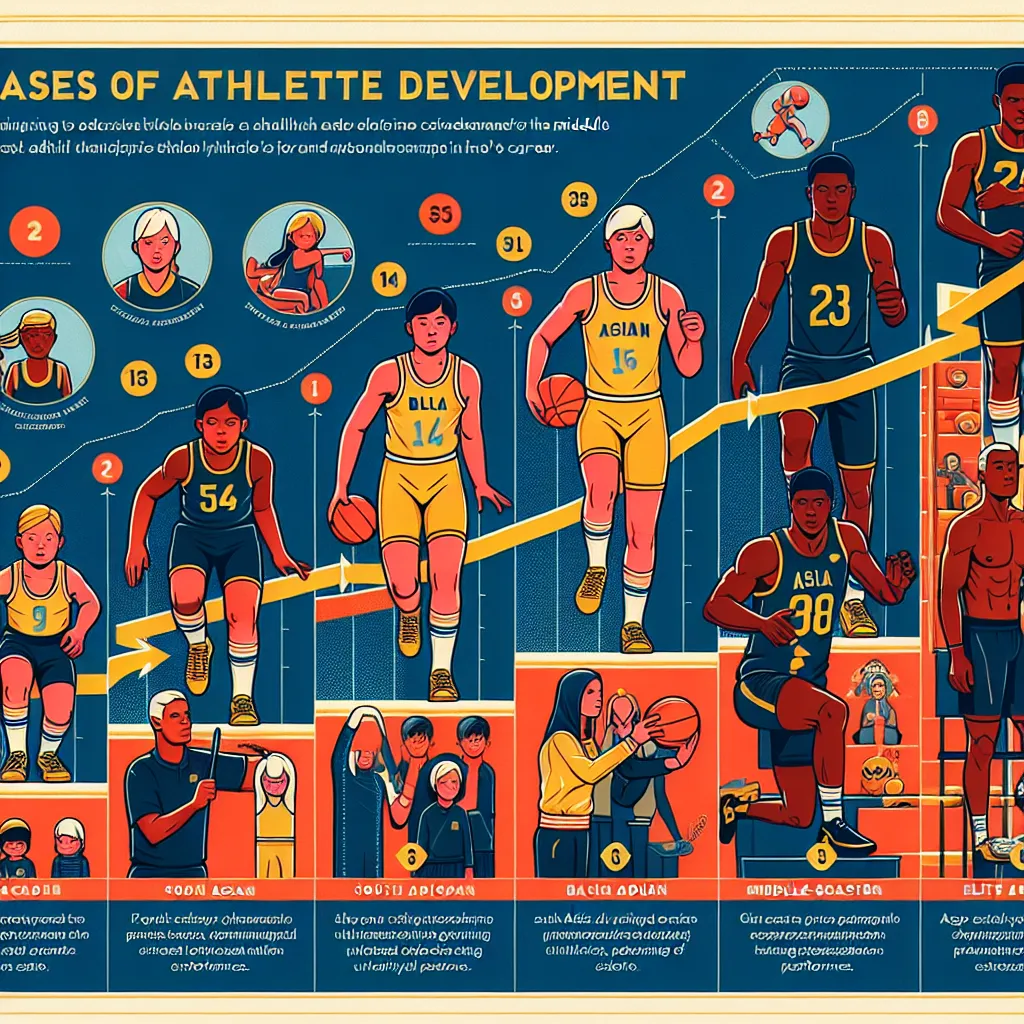Athlete development is a crucial concept in sports science and management. For IELTS test-takers, understanding this term and its related vocabulary is essential for achieving high scores, particularly in the Reading and Writing sections. Let’s dive deep into this topic and explore how you can effectively learn, remember, and use this vocabulary in your IELTS preparation.
Definition and Pronunciation
Athlete development [ˈæθliːt dɪˈveləpmənt] (noun phrase): The process of improving an athlete’s physical, mental, and technical abilities over time to enhance their performance in their chosen sport.

Context and Usage
Examples in Context
-
Athlete development programs are crucial for nurturing young talent in professional sports.
- This sentence highlights the importance of structured programs in developing athletes from a young age.
-
The coach emphasized long-term athlete development rather than short-term victories.
- Here, we see the contrast between long-term development and immediate results, a key concept in sports management.
-
Universities play a significant role in athlete development by providing state-of-the-art facilities and expert coaching.
- This example illustrates the role of educational institutions in the athlete development process.
-
Proper nutrition is an essential component of comprehensive athlete development.
- This sentence underscores the multifaceted nature of athlete development, including aspects beyond physical training.
-
The sports psychologist focused on mental resilience as part of the athlete development strategy.
- This example highlights the psychological aspect of athlete development, often overlooked but crucial for success.
Common Contexts
You’re likely to encounter the term “athlete development” in discussions about:
- Sports science and management
- Youth sports programs
- Professional team strategies
- Olympic training methods
- Sports psychology and nutrition
Vocabulary Analysis
Word Structure
- Athlete: [ˈæθliːt] (noun) – a person who is proficient in sports and other forms of physical exercise.
- Development: [dɪˈveləpmənt] (noun) – the process of growing or causing something to grow or become larger or more advanced.
Synonyms and Antonyms
Synonyms:
- Sports progression [spɔːts prəˈɡreʃən] (noun phrase) – advancement in athletic abilities.
- Athletic improvement [æθˈletɪk ɪmˈpruːvmənt] (noun phrase) – enhancement of sports-related skills.
- Talent nurturing [ˈtælənt ˈnɜːtʃərɪŋ] (noun phrase) – fostering the growth of athletic potential.
Antonyms:
- Athletic stagnation [æθˈletɪk stæɡˈneɪʃən] (noun phrase) – lack of progress in sports performance.
- Skill deterioration [skɪl dɪˌtɪərɪəˈreɪʃən] (noun phrase) – decline in athletic abilities.
Memory Techniques
Mind Mapping
Create a mind map with “Athlete Development” at the center, branching out to related concepts such as:
- Physical training
- Mental conditioning
- Nutritional planning
- Technical skill enhancement
- Performance analysis
Storytelling Technique
Imagine a young athlete named Alex embarking on a journey of development. Visualize Alex progressing through various stages of training, overcoming challenges, and ultimately achieving success in their sport. This narrative can help anchor the concept of athlete development in your memory.
Practical Application
IELTS Writing Task 2 Example
Question: Some people believe that children should be encouraged to become professional athletes from a young age. Others think this approach is harmful. Discuss both views and give your opinion.
In your response, you could use “athlete development” to discuss the pros and cons of early specialization in sports:
“While early athlete development programs can nurture talent, they may also put undue pressure on young individuals. A balanced approach to athlete development that considers both physical and mental well-being is crucial. Long-term athlete development strategies should focus on gradual progression rather than immediate results.”
IELTS Speaking Part 3 Example
Question: How has technology changed the way athletes train?
Response: “Technology has revolutionized athlete development in numerous ways. Advanced tracking devices allow coaches to monitor an athlete’s performance metrics in real-time, enabling more personalized training regimens. Virtual reality simulations are being used for mental conditioning, an essential aspect of comprehensive athlete development. These technological advancements have made athlete development more scientific and data-driven than ever before.”
Conclusion
Mastering the concept and vocabulary related to “athlete development” can significantly enhance your performance in the IELTS test, particularly in tasks that involve sports, education, or personal development themes. Remember to practice using this term in various contexts and to explore related vocabulary to build a comprehensive understanding of the subject.
We encourage you to share your experiences with learning and using this vocabulary in the comments section below. How do you think understanding “athlete development” can help in your IELTS preparation? Do you have any questions about applying this term in different IELTS tasks?
For more information on related topics, you might find these articles helpful:
Remember, consistent practice and application are key to mastering new vocabulary. Keep exploring, and best of luck with your IELTS preparation!